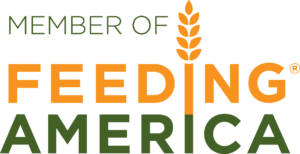
Statement from Aaron Czyzewski, Director of Advocacy & Public Policy, Food Lifeline, about the House Committee on Agriculture’s draft House farm bill
Food Lifeline is concerned by certain provisions included in the draft farm bill introduced today by the U.S. House of Representatives Agricultural Committee Chair. The farm bill plays a pivotal role in addressing food insecurity, yet policy changes proposed by the bill make harmful cuts to crucial federal nutrition programs that help millions of people access the food they need to thrive.
Food insecurity is on the rise in Washington state and across the U.S.—the highest rates since 2014. In 2022, the number of people living in food-insecure households increased to 44 million across the country, including 13 million children. In Washington, 1in 8 people experienced food insecurity, according to the most recent data from the U.S. Department of Agriculture. The upcoming farm bill is a crucial opportunity to quickly reduce hunger in our community and support the work of food banks in Washington.
While the House farm bill text does propose several limited improvements to nutrition programs, those are vastly outweighed by provisions that would weaken the government’s ability to provide vital resources to people facing hunger. In particular, the bill would prevent future benefits of SNAP from reflecting costs associated with updated nutrition guidance and the ways people shop and cook. This would cut nearly $30 billion in food assistance benefits, which would impact all future SNAP recipients, including children, older adults, and people with disabilities—and increase pressure on the nation’s already strained food banks. The bill would also make concerning changes to SNAP that could threaten the dignity of neighbors to choose the foods that work best for them and their families.
The bill includes positive provisions that increase eligibility and access to SNAP, including for seniors and individuals with drug felony convictions. It finally includes a provision to allow Indian Tribes and Tribal organizations to enter self-determination contracts with USDA to administer SNAP.
Vital to increasing people’s access to nutritious foods is The Emergency Food Assistance Program (TEFAP), which moves food from U.S. farmers and producers, through food banks, to families facing hunger. Providing crucial investments in TEFAP not only ensures that families can access healthy food but also bolsters our U.S. farm economy. Currently, the House farm bill provides an additional $40 million per year for TEFAP entitlement food purchases, far lower than the significant increase Food Lifeline needs to address hunger in our communities across Western Washington. The bill would also limit the USDA’s authority to use Commodity Credit Corporation funds without explicit Congressional approval, creating a barrier to the USDA providing additional funds to purchase food distributed through TEFAP.
As the farm bill progresses through the legislative process, Food Lifeline supports a bill that will make strategic investments to help end hunger, without making harmful cuts and policy changes to SNAP, SNAP’s Thrifty Food Plan future benefits, or any of the other federal nutrition plans. We urge Congress to prioritize a robust, bipartisan bill to ensure that everyone in Washington state and across the nation has access to nutritious food.
Summary
- The bill would cut future SNAP benefits by limiting the authority of the USDA to re-evaluate the Thrifty Food Plan beyond cost-neutral updates. Previous estimates indicated this would be a cut of nearly $30 billion in future SNAP food assistance benefits.
- For SNAP, the bill includes a limited number of positive provisions that increase eligibility and access, including for seniors and individuals with drug felony convictions. It also includes a provision to allow Indian Tribes and Tribal organizations to enter self-determination contracts with USDA to administer SNAP.
- The bill would make concerning changes to SNAP that could threaten the dignity of neighbors to choose the foods that work best for them and their families.
- For TEFAP, the bill would increase food purchases by $40 million per year, increase storage and distribution funding authorization from $100 million to $200 million per year (subject to appropriations), increase Farm to Food Bank funding from $4 million to $6 million, and maintain authorization for up to $15 million per year for TEFAP infrastructure grants (subject to appropriation).
- The bill would also establish a separate food box pilot program funded at $100 million in FY25 and $100 million in FY26. We are still analyzing the details of how the pilot would work and potential implications for the network and the people we serve.
- The bill would also limit the USDA’s authority to use CCC funds without explicit Congressional approval, creating a barrier to the USDA providing additional funds to purchase food distributed through TEFAP.
Contact
Aaron Czyzewski
aaronc@foodlifeline.org







